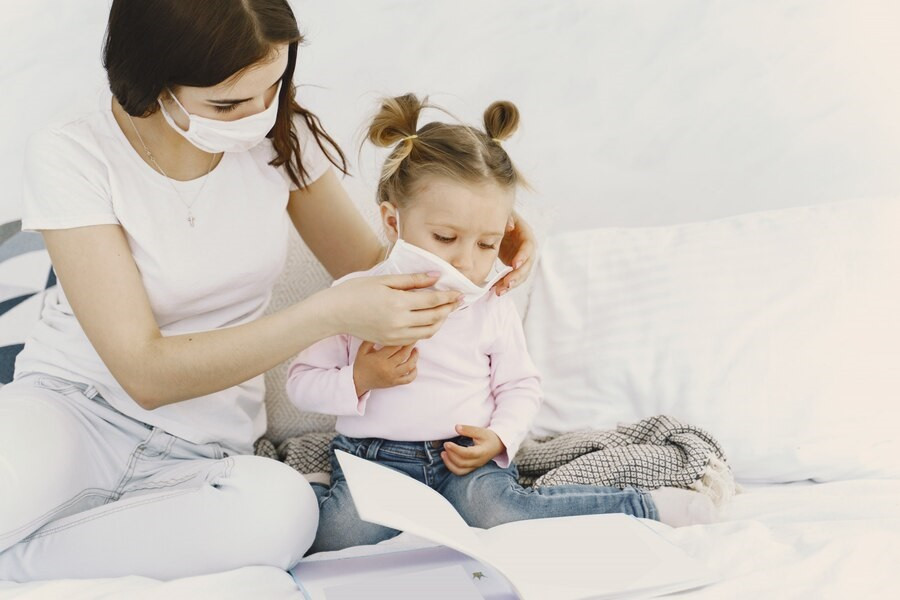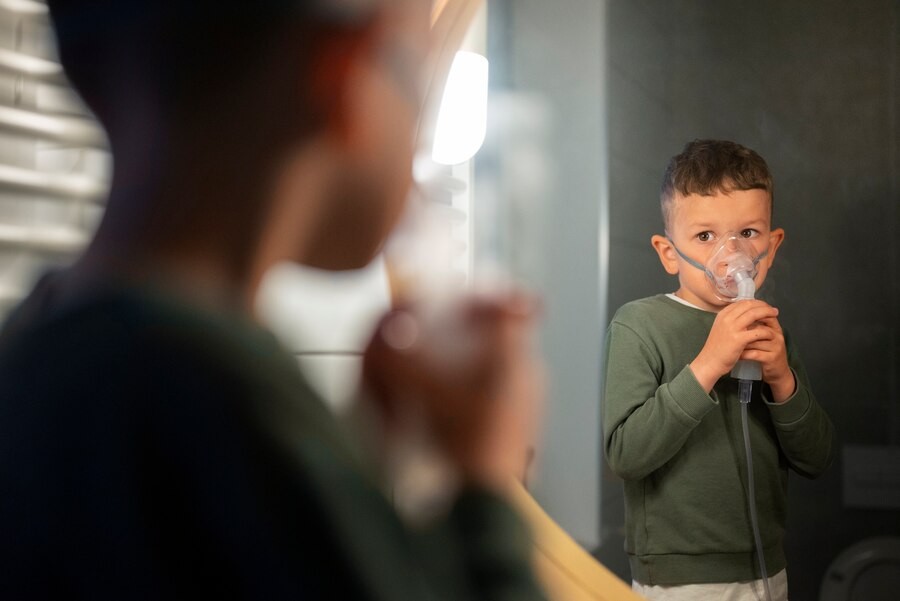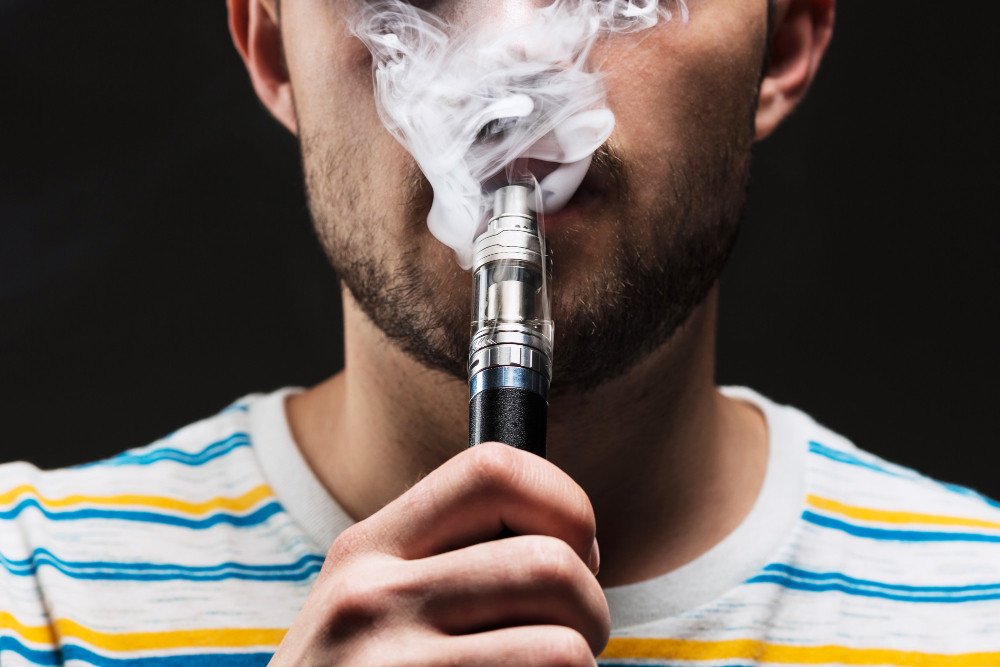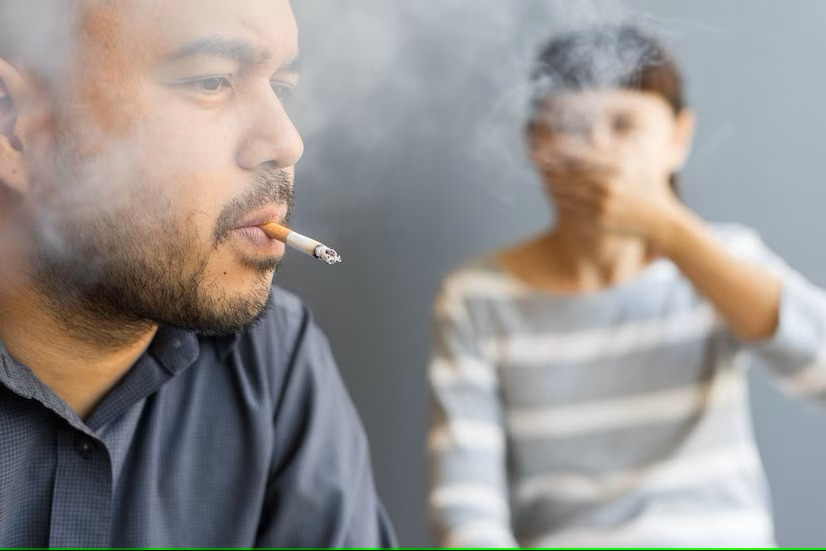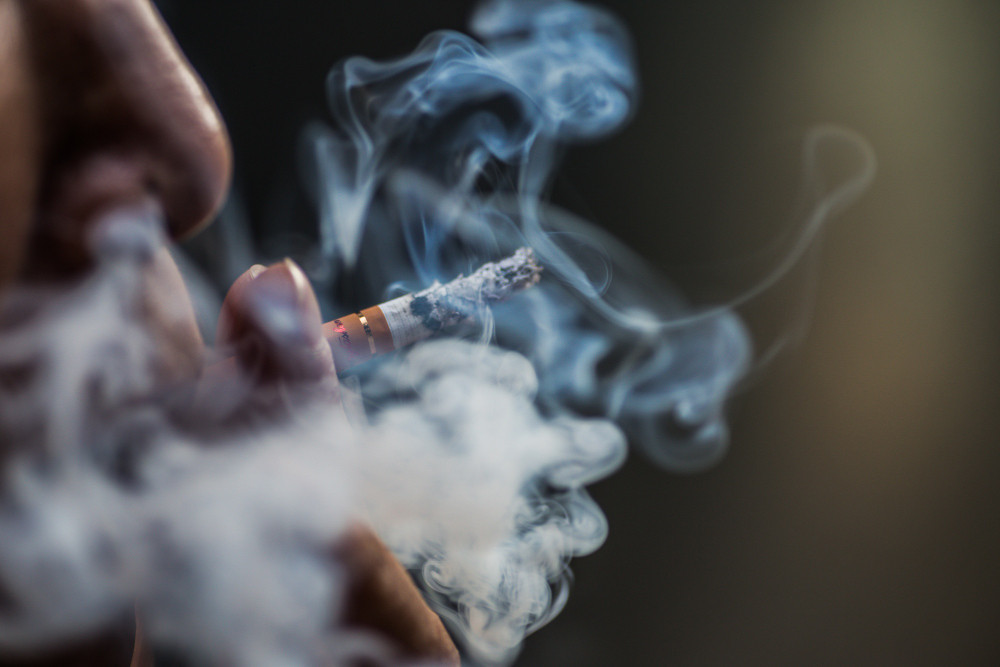Infants and children become passive smokers when they are exposed to cigarette smoke from active smokers or are in the vicinity of active smoking. Cigarette smoke comprises harmful chemical compounds like carbon monoxide, nicotine, tar, and various carcinogens, which elevate the risk of severe ailments such as cancer, heart disease, and respiratory disorders.
Children living with adults who smoke face the risk of developing a range of health issues, some of which can be life-threatening. Hence, safeguarding children from exposure to cigarette smoke is of utmost importance.
Health risks related to cigarette smoke exposure in newborns or young children
Babies and children who are exposed to cigarette smoke from family or neighbors are at risk of experiencing health problems that can be life-threatening, including:
Sudden unexpected death in infancy (SUDI)
Sudden Unexpected Death in Infancy (SUDI) is a component of sudden infant death syndrome (SIDS). It's a devastating cause of death that can occur if a baby sleeps in a room where smoking occurs or is exposed to cigarette smoke.
Furthermore, exposure to cigarette smoke during pregnancy heightens the risks of SIDS, premature birth, low birth weight, and respiratory issues upon the baby's arrival. Given these profound effects, pregnant women should quit smoking and steer clear of cigarette smoke exposure.
Lung disease
Exposure to cigarette smoke can cause respiratory problems in babies and children, such as lower respiratory tract infections, for example, bronchitis and pneumonia. Cigarette smoke contains various toxic substances that can damage the respiratory tract and reduce the body's ability to fight infections. When the body is susceptible to infection, germs will more easily attack body organs, including the lungs and cause pneumonia.
Aggravate asthma
Being exposed to cigarette smoke can exacerbate and provoke asthma attacks in children already dealing with asthma. Besides containing harmful substances, cigarette smoke also harbors irritants that can incite inflammation and constrict the airways. Consequently, children with asthma may experience increased coughing, shortness of breath, and chest tightness.
Moreover, exposure to cigarette smoke can diminish children's responsiveness to asthma medications, making it more challenging to manage the symptoms of this condition.
Frequently exhibit symptoms like coughing up phlegm and wheezing
School-aged children who reside with adults who smoke or are frequently exposed to cigarette smoke face an increased risk of developing respiratory symptoms like coughing up phlegm, shortness of breath, and wheezing.
Exposure to cigarette smoke irritates the respiratory tract, leading to increased coughing among children. This heightened coughing response results in increased phlegm production as a reaction to the smoke's irritation. Excessive phlegm production then triggers wheezing, which manifests as high-pitched whistling sound when a child breathes.
Meningococcal disease
Meningococci are bacteria capable of causing severe infections like meningitis and sepsis. Children exposed to cigarette smoke are more vulnerable to meningococcal infections, as cigarette smoke weakens the immune system. Meningococcal meningitis necessitates urgent medical attention, as it can progress rapidly and lead to fatalities if left untreated.
Shielding children and infants from cigarette smoke is crucial for preserving their health and lowering their chances of developing severe illnesses. If a child or infant experiences a persistent or worsening cough, promptly seek medical attention from a doctor.
If you need medical advice or consultation, you can either visit a doctor or make use of the consultation features that are available in the Ai Care application by downloading the Ai Care application from the App Store or Play Store.
Looking for more information about pregnancy, breastfeeding, and the health of women and children? Click here!
- dr. Monica Salim
Better Health Channel. Passive smoking. Available from: https://www.betterhealth.vic.gov.au/health/conditionsandtreatments/passive-smoking
Health Direct (2022). Passive smoking. Available from: https://www.healthdirect.gov.au/passive-smoking
Better Health Channel. Sudden unexpected deaths in infants (SUDI and SIDS). Available from: https://www.betterhealth.vic.gov.au/health/healthyliving/sudden-unexpected-death-in-infants-sudi-and-sids#tobacco-smoke-and-sudi
Stanford Medicine. Acute Bronchitis in Children. Available from: https://www.stanfordchildrens.org/en/topic/default?id=acute-bronchitis-in-children-90-P02930
WebMD (2022). Smoking and Asthma. Available from: https://www.webmd.com/asthma/smoking-and-asthma
Stanford Medicine. Meningococcal Infections in Children. Available from: https://www.stanfordchildrens.org/en/topic/default?id=meningococcal-infections-in-children-90-P02529

